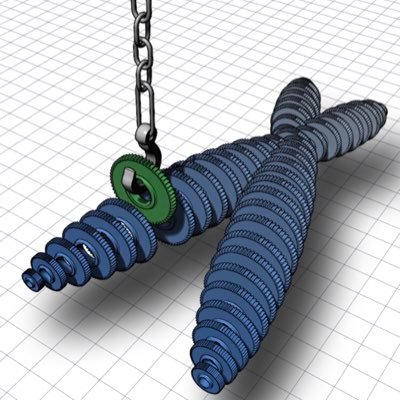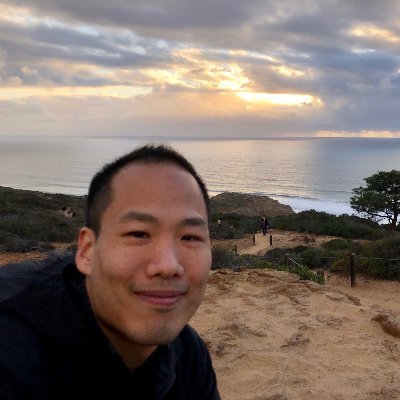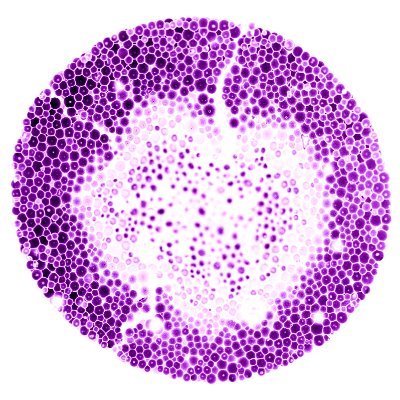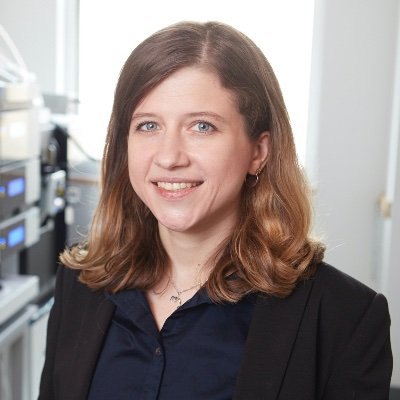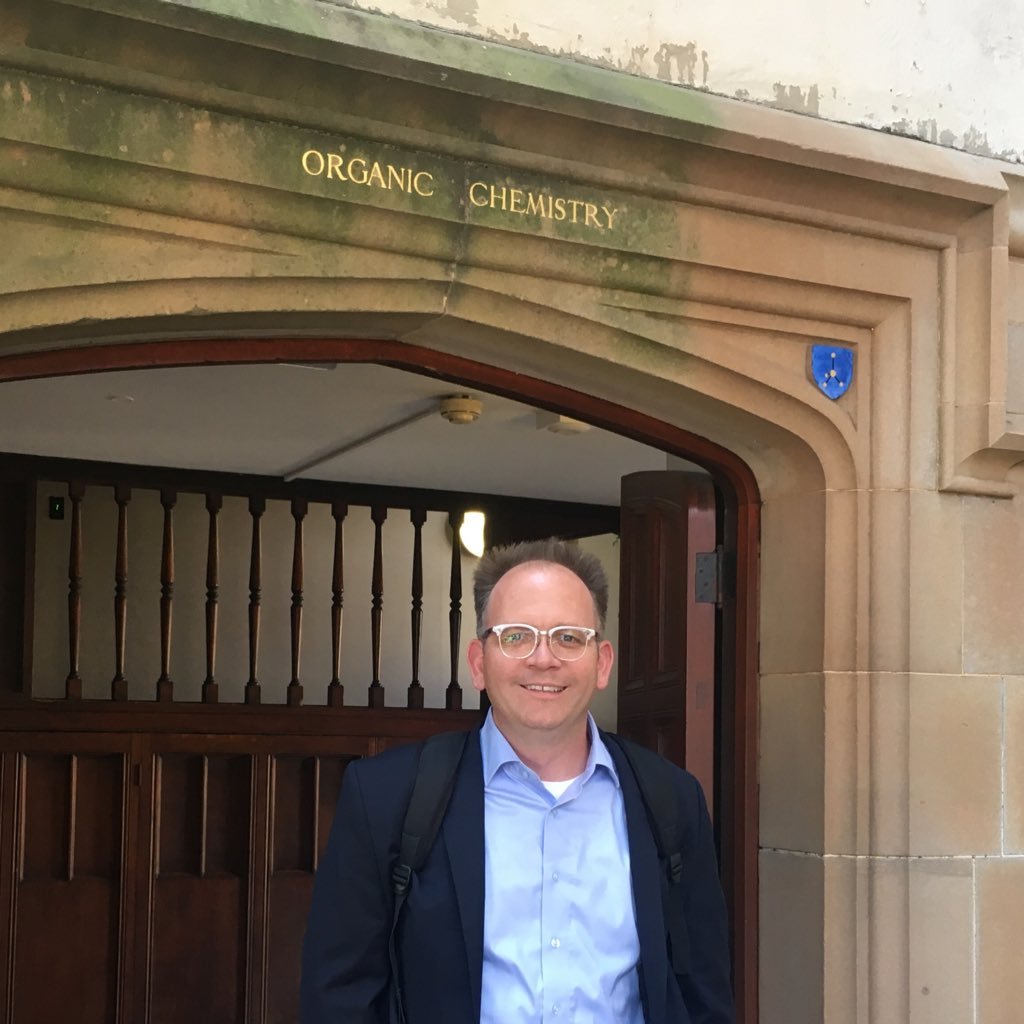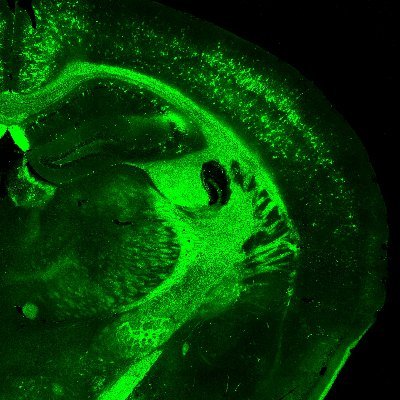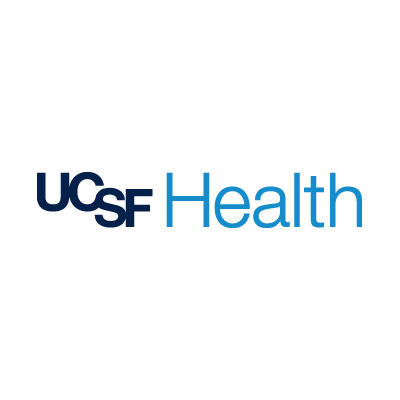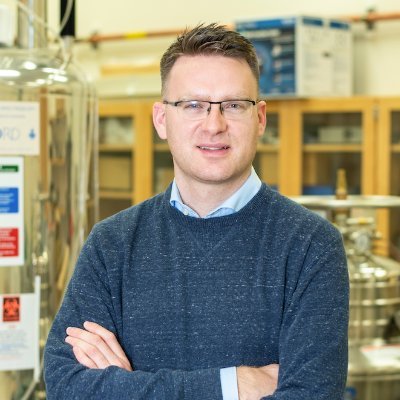
Johannes Morstein
@mo_hannes
Followers
1K
Following
4K
Media
29
Statuses
496
Assistant Professor @CaltechCCE | Chemical Biologist
San Francisco, CA
Joined March 2017
Introducing the bionic azobenzene cell, AKA "Photocell", capable of modulating the viscosity of its internal membrane systems with light. I am still amazed how many photolipids cells can gobble up and accommodate. A wonderful collaboration with Howard Riezman, Suihan Feng,
7
24
137
Excited to share our new @ACSCentSci paper! We engineered cells with ~10% photolipids in the ER membrane. This enabled optical control of membrane viscosity to study its impact on ER→Golgi protein transport. @NoemiJRojo @DirkTrauner @ACSPublications
https://t.co/cGvGwpB0pR
pubs.acs.org
The lipid composition of cellular membranes is highly dynamic and undergoes continuous remodeling, affecting the biophysical properties critical to biological function. Here, we introduce an optical...
1
1
18
I am extremely proud to see our work about Hepatitis B now published in @CellCellPress. From basic research to identifying the key step of infection & a potential first drug for curing this devastating disease. This has been an incredible journey.🧵 https://t.co/wfdbwQmw4J
23
33
196
Check out our paper on proton pump inhibitor activation in cells in @NatureChemistry. Congrats to first author Teresa Marker who started this project in my group and finished it with Tobias Dick (@RedoxDKFZ). More collabs between our groups @DKFZ to come! https://t.co/oYt2rHEF0D
2
19
117
I am excited to announce that in March, I will start my lab in the Department of Cancer Biology (@Penn_CBIO) at the University of Pennsylvania Perelman School of Medicine (@PennMedicine).
stevens.bio
10
21
214
New year, new institution... new website! Check out https://t.co/yqerta73CC for up-to-date information on who we are, what we do, and the papers we write.
2
13
132
Please consider making a contribution to this special fund that will be used by Caltech and JPL to directly support affected individuals and their families greatly impacted by this week's devastating fires in Southern California. https://t.co/2G0pT8XtRh
3
69
109
1/n Excited to share: Fully atomistic molecular dynamics modeling of photoswitchable azo-PC lipid bilayers: structure, mechanical properties, and drug permeation - now published in Nanoscale
pubs.rsc.org
Phospholipid based vesicles called liposomes are commonly used as packaging in advanced drug delivery applications. Stimuli-responsive liposomes have been designed to release their contents under...
1
4
7
Hello world! After my lab has been operating in "stealth mode" for 1.5 years, I am excited to announce that we finally have a website: https://t.co/EPURFZRivA By the way I'm also hiring and looking for a postdoc with proteomics experience: https://t.co/wqhDOzH1lx
#TeamMassSpec
huttenhainlab.com
The Huttenhain Lab at Stanford University studies cellular signaling networks to uncover how cells decode extracellular cues into dynamic physiologic responses.
5
48
215
Excited to see the final version of our manuscript out in @CellChemBiol! In this study, we investigate the mechanism of action of an immunosuppressive small-molecule electrophile, which targets a core splicing factor SF3B1! @RockefellerUniv
8
13
106
Super excited for the release of this paper today in science. Congrats to the entire team at @Caltech @EmoryUniversity @scrippsresearch #proudadvisor
science.org
(−)-Cylindrocyclophane A is a 22-membered C2-symmetric [7.7]paracyclophane that bears bis-resorcinol functionality and six stereocenters. We report a synthetic strategy for (−)-cylindrocyclophane A...
6
36
303
Drugging GTPases Beyond KRAS | https://t.co/tXipTziydi Thu, Nov 7, 2024 8 AM PT / 11 AM ET / 5 PM CEST In this Flash Talk, Johannes Morstein will discuss if druggable pockets are present in GTPases beyond KRAS. There will be Q&A. This is a live-only event you won't want to miss!
0
4
33
Excited to share this (my first single-authored) #lipidtime minireview!🎉 I’ve synthesized all the insights from >5 years of experiments (including some unpublished work) to explore the dynamic regulatory network of phosphatidic acid (PA) metabolism ✅🔗👇 https://t.co/QVbkZmwZIy
8
29
158
Can we turn the activity of oncogenic kinases against cancer itself? In my postdoc work @Stanford, new in @sciencemagazine, we show exactly that. https://t.co/PZjQxvab7z
#ScienceResearch #InducedProximity @Stanford_ChEMH @StanfordCancer @snsf_ch @StanfordMed
science.org
Kinases are critical regulators of cellular function that are commonly implicated in the mechanisms underlying disease. Most drugs that target kinases are molecules that inhibit their catalytic...
8
38
188
In @J_A_C_S: a new chemoenzymatic labeling method for α-1,6-linked fucose (core fucose), with ELISA integration for detecting cancer-related biomarkers in patient serum samples. Congrats to @JeanLucChaubard, Qiang Zhu, & team!
pubs.acs.org
Core fucosylation, the attachment of an α-1,6-linked-fucose to the N-glycan core pentasaccharide, is an abundant protein modification that plays critical roles in various biological processes such as...
0
3
28
Great summary of our paper in @cenmag! Thank you for highlighting our study @beth_halford! @CellPressNews @CellCellPress @UCSFCancer @ucsfhealth
Researchers have used what they know about the weak spot in KRas G12C to locate a toehold for small molecules on other GTPases. The finding could lead to new drugs and biological probes. https://t.co/e5fB24sYg2 .
2
2
26
UCSF researchers have made a discovery about molecular switches called GTPases that are involved in diseases once considered "undruggable"—from Parkinson's to cancer. "This really puts all those GTPases on the map for drug discovery," UCSF’s @kevansf says.
ucsf.edu
Scientists discover how to drug GTPases, a group of 150 critical enzymes that act like "switches" in cells, which cause a wide variety of diseases such as cancer and Parkinson’s disease when mutated.
0
3
13
Thanks also to Levy Gadye for writing a great @UCSF press release on our study - https://t.co/SWLIAVoKwi (7/7)
ucsf.edu
Scientists discover how to drug GTPases, a group of 150 critical enzymes that act like "switches" in cells, which cause a wide variety of diseases such as cancer and Parkinson’s disease when mutated.
0
0
2
Grateful for the fantastic team behind this study - @VickieBowcut #MicahFernando @yangyue1209 #LarryZhu #MeredithJenkins #JohnEvans #KeelanGuiley #MattPeacock #SophieKrahnke @Zhi_Lindsey_Lin #KatrineTaran #BenHuang #AndyStephen #JohnBurke #FeliceLightstone and @kevansf (6/7)
1
0
3



